Keeping Senior Pets Comfortable: How to Modify Their Environment
As pets age, their needs change. Senior dogs and cats often face mobility challenges, joint pain, cognitive decline, and sensory changes, all of which can impact their quality of life. While veterinary care plays a crucial role in maintaining their health, modifying their home environment can help them stay comfortable, safe, and engaged in their golden years.
At Mobile Cat & Dog Vet in Bend, Oregon, we provide in-home veterinary care with a special focus on senior and palliative care. In this guide, we’ll explore practical ways to modify your home to help your senior pet feel more comfortable, confident, and supported.
Understanding Your Pet’s Senior Life Stage
Aging affects pets differently based on their species, breed, and health status. In general:
- Cats and small dogs are considered senior at 7–10 years old.
- Large and giant breed dogs may reach senior status as early as 5–7 years old.
Senior pets often experience:
- Reduced mobility due to arthritis or muscle loss
- Changes in vision and hearing
- Increased need for warmth and comfort
- Cognitive decline (dementia-like symptoms in pets)
Learn more about what defines the senior life stage in pets from AAHA’s senior pet resource.
1. Supporting Mobility and Joint Health
Arthritis and joint pain are common in senior pets, making it difficult for them to climb stairs, jump onto furniture, or walk on slippery surfaces.
How to Modify Your Home for a Senior Pet:
- Use ramps and pet stairs – Provide easy access to couches, beds, or vehicles.
- Place rugs or traction mats – Help prevent slipping on hardwood or tile floors.
- Elevate food and water bowls – Reduces strain on the neck and joints.
- Provide orthopedic bedding – Cushioned, memory foam beds help relieve pressure on sore joints.
- Keep daily necessities on one level – If possible, reduce the need for climbing stairs by placing food, water, and bedding on the main floor.
For more tips on supporting your aging pet’s mobility, visit AAHA’s guide on aging with grace.
2. Creating a Safe and Accessible Environment
Senior pets may experience reduced vision, hearing loss, and cognitive decline, making it harder for them to navigate their surroundings.
Home Modifications for Safety and Accessibility:
- Avoid rearranging furniture – Keeping furniture in the same place helps pets with vision loss navigate safely.
- Use nightlights – Helps pets with poor vision see better in dim lighting.
- Block off stairs if needed – Prevent falls by using baby gates.
- Provide a quiet retreat space – Senior pets often prefer a calm, quiet area away from household activity.
For more information on senior pet wellness, visit AVMA’s senior pet care guide.
3. Managing Temperature and Comfort Needs
Older pets are more sensitive to temperature extremes due to thinner fur, reduced muscle mass, and slower circulation.
How to Keep Senior Pets Comfortable:
- Provide extra bedding in colder months – Heated pet beds or blankets can help.
- Keep them cool in hot weather – Ensure access to shade, cool surfaces, and fresh water.
- Avoid sudden temperature changes – Senior pets may struggle to regulate body temperature, so keep their sleeping area stable and comfortable.
4. Supporting Cognitive Health and Mental Stimulation
Cognitive decline, or canine and feline cognitive dysfunction, can cause:
- Confusion and disorientation
- Changes in sleep patterns
- Increased vocalization or anxiety
Ways to Keep Senior Pets Mentally Engaged:
- Use puzzle feeders – Encourages problem-solving while eating.
- Maintain a consistent routine – Predictability reduces anxiety.
- Provide gentle social interaction – Avoid overwhelming them with loud noises or too much activity.
- Encourage light exercise – Short, frequent walks help maintain mobility and brain function.
Veterinary care plays a critical role in monitoring cognitive health. Learn more about preventive screenings for senior pets from Zoetis Petcare.
5. Enhancing Mealtime and Hydration
Senior pets may develop reduced appetite, dental issues, or dehydration, which can affect their health.
How to Make Eating and Drinking Easier:
- Use shallow or wide bowls – Helps pets with arthritis or mobility issues eat comfortably.
- Consider softer foods – Wet food or softened kibble can be easier on aging teeth.
- Encourage hydration – Provide multiple water stations, use water fountains, or add moisture to food.
For more on veterinary recommendations for senior pets, visit AAHA’s guide on supporting aging pets.
6. Providing Gentle Grooming and Hygiene Care
Older pets may struggle to groom themselves effectively, leading to matted fur, overgrown nails, or skin irritation.
Gentle Grooming Tips for Senior Pets:
- Brush regularly – Helps prevent mats and stimulates circulation.
- Trim nails frequently – Overgrown nails can affect mobility and cause joint pain.
- Use pet-safe wipes for hygiene – Keeps the face, paws, and coat clean.
7. End-of-Life and Palliative Care Considerations
For pets with chronic conditions or terminal illnesses, modifications to the home can improve comfort in their final months.
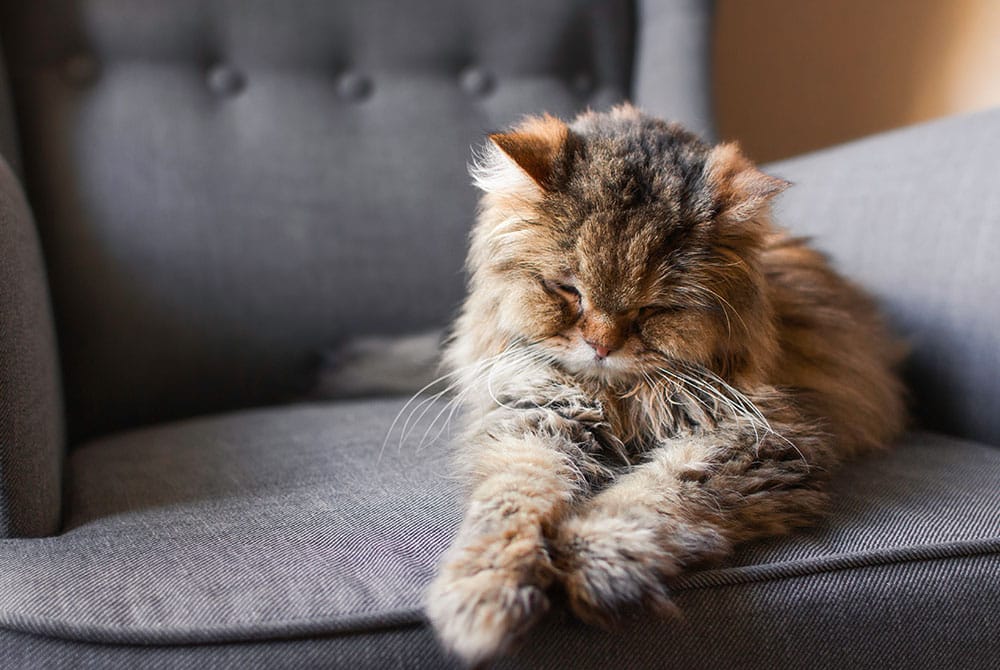
Palliative Care Considerations:
- Soft, supportive bedding to ease joint pain
- Easy access to food, water, and a litter box
- Minimizing stress and unnecessary interventions
- In-home veterinary visits for pain management and hospice care
At Mobile Cat & Dog Vet, we offer compassionate, in-home palliative and end-of-life care, ensuring that pets remain comfortable and surrounded by loved ones.
For more guidance on hospice and end-of-life care, visit ASPCA’s resource on pet euthanasia and palliative care.
Prioritizing Comfort and Care for Your Senior Pet
Modifying your home for a senior pet can greatly improve their quality of life, helping them feel safe, comfortable, and supported as they age. Along with regular veterinary checkups, small adjustments to their environment can make a significant difference in their well-being.
Have questions about senior pet care? Contact us today for expert guidance.
Need an in-home consultation? Request an appointment to ensure your pet’s golden years are as comfortable as possible.


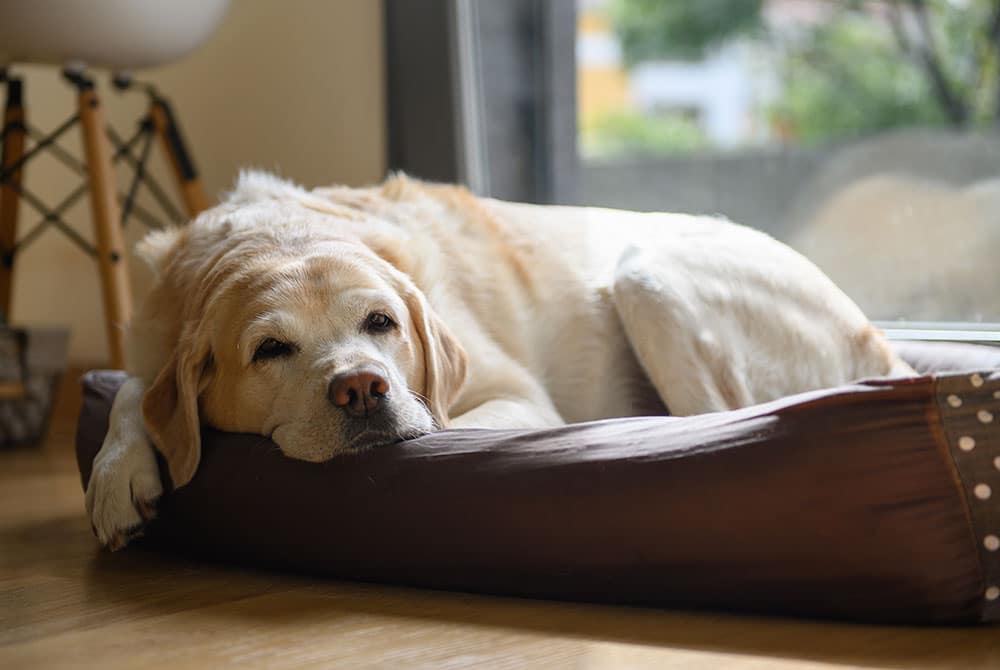
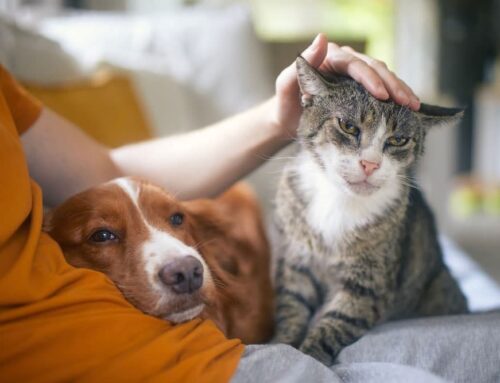
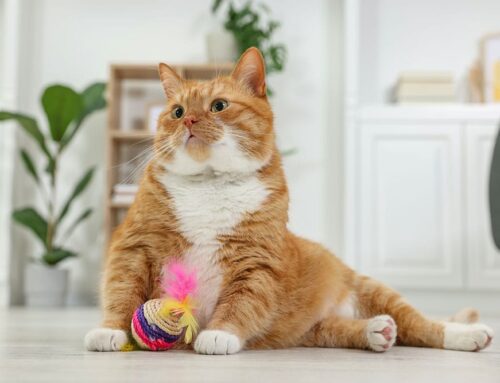
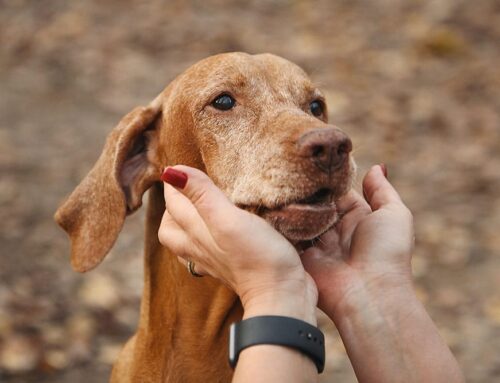


Leave A Comment